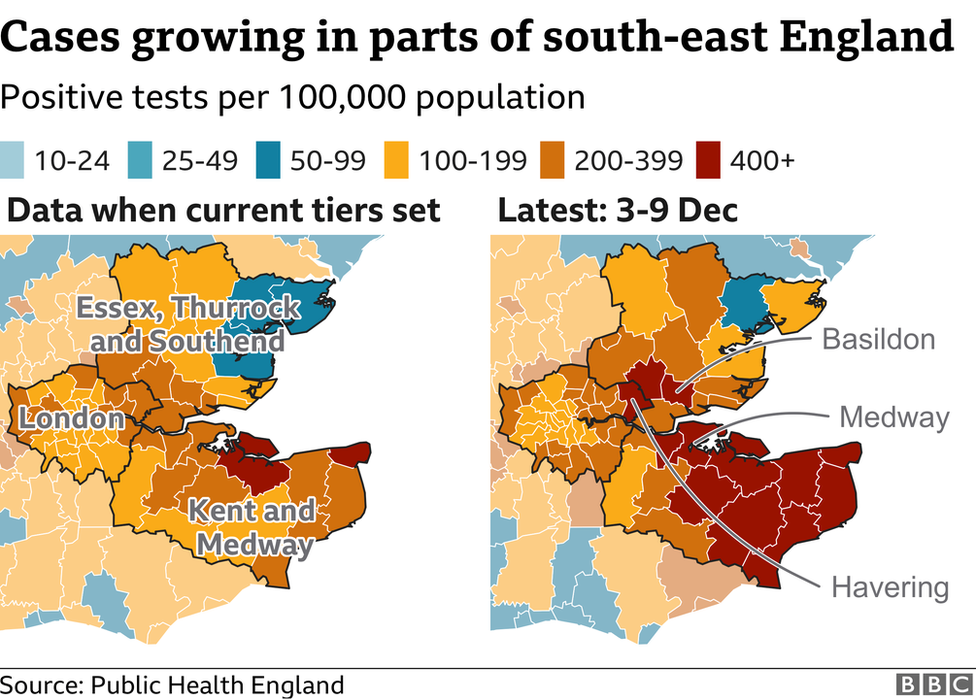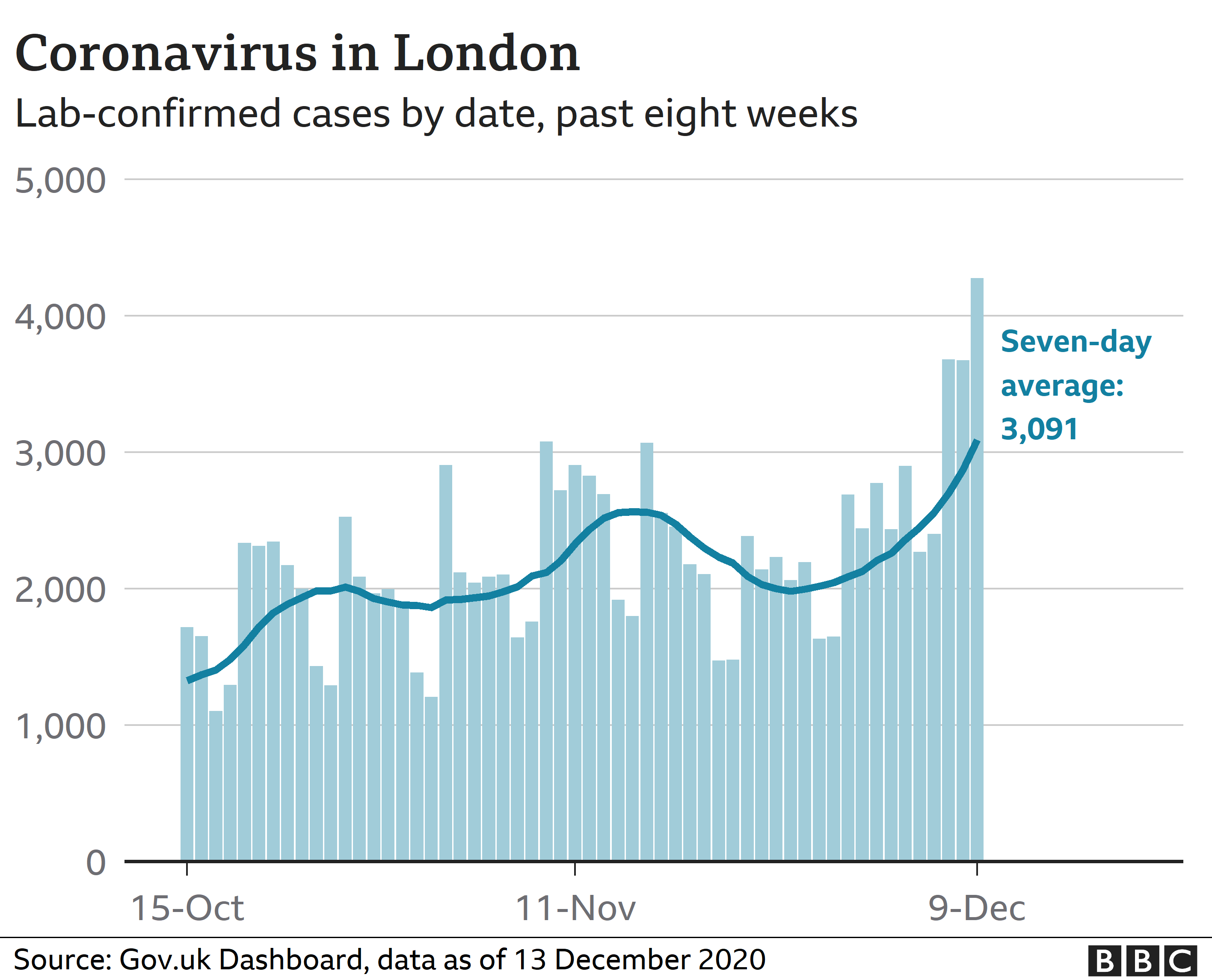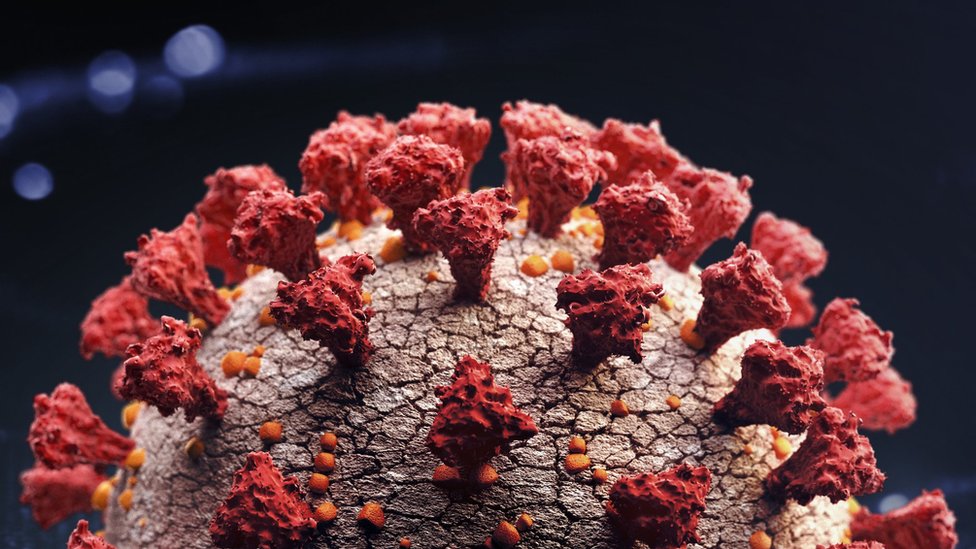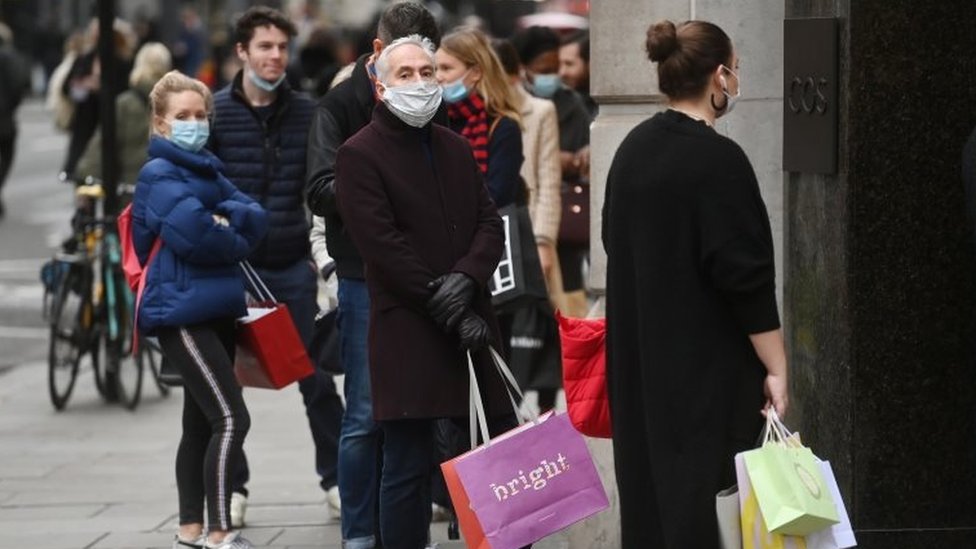London will move into England’s highest tier of Covid restrictions from 00:01 GMT on Wednesday, Health Secretary Matt Hancock has said.
Parts of Essex and parts of Hertfordshire will also enter tier three at the same time.
A new variant of coronavirus has been identified "which may be associated with the faster spread in the south of England", Mr Hancock told the Commons.
Pubs and restaurants in tier three must close except for takeaway and delivery.
Also under the rules, sports fans cannot attend events in stadiums, and indoor entertainment venues - such as bowling alleys and cinemas - must remain shut.
The health secretary told MPs that action had to be taken immediately - before the next scheduled review of England's three-tier system on Wednesday - to slow "sharp, exponential rises" in infection, adding that in some areas the virus was doubling around every seven days.
Hospitals across the capital, Essex and Kent were already "under pressure", he warned.
He said there was "currently nothing to suggest" that the new variant was more likely to cause serious disease and advice was that it's "highly unlikely" the mutation would fail to respond to a vaccine.
But he urged vigilance and said "everyone needs to take personal responsibility not to spread this virus".
With Kent, Medway and Slough already under tier three rules, it means large parts of south-east England will soon join much of the Midlands, north-west England and north-east England under the strictest curbs on social contacts.
More than 34 million people will be in tier three when the changes come into effect, 21.5 million in tier two and about 700,000 in tier one.
The latest tier three areas include:
- Greater London
- The south and west of Essex (Basildon, Brentwood, Harlow, Epping Forest, Castle Point, Rochford, Maldon, Braintree and Chelmsford, along with Thurrock and Southend-On-Sea borough councils)
- And the south of Hertfordshire (Broxbourne, Hertsmere, Watford and the Three Rivers local authority)
Mr Hancock is leading a Downing Street news conference alongside Prof Chris Whitty, England's chief medical officer, and Prof Kevin Fenton, London regional director for Public Health England.

What are tier three (very high) rules?
- You cannot mix indoors, in private gardens or in most outdoor venues, except with your household or bubble
- You can meet in a group of up to six in other outdoor spaces, such as parks, beaches or countryside
- Shops, gyms and personal care services (such as hairdressing) can stay open
- Bars, pubs, cafes and restaurants must stay closed, except for delivery and takeaway
- Sports fans cannot attend events in stadiums
- Indoor entertainment venues - such as bowling alleys and cinemas - must stay closed
- People are advised not to travel to and from tier three areas

Labour's shadow health secretary Jonathan Ashworth said "none of us are surprised" at the action the health secretary is taking, but warned the country was "heading into the Christmas easing with diminishing headroom".
Meanwhile, London Mayor Sadiq Khan described the announcement as "incredibly disappointing" for businesses, but said it was clear the virus was "accelerating in the wrong direction" and urged all Londoners to follow the rules.
Essex County Council leader David Finch said local leaders would lobby the government for support "during this very challenging time".
And Hertfordshire County Council's leader, David Williams, acknowledged the changes would prompt concerns with residents and businesses but said: "We must all stay disciplined and stick to the guidance and rules if we are to improve the situation."


Sectors hit hard by the fresh restrictions expressed anger over the decision.
The director of the Theatres Trust said London's theatres would face "disaster" under the stricter rules, while business owners in the capital said it would "be a ghost town".
Kate Nicholls, of trade body UKHospitality, said the move places an "unfair, illogical and disproportionate burden on hospitality businesses without effectively tackling Covid".
And Emma McClarkin, chief executive of the British Beer & Pub Association, said the move into tier three was "another nail in the coffin for London's pubs, as well as those affected in parts of Hertfordshire and Essex".
There was also disappointment that sporting events in London would no longer be able to welcome fans from Wednesday.
An MP in an earlier briefing from Mr Hancock said they were told that the next review of the tier system would be on 23 December.
Conservative MP Stephen Hammond, one of the London MPs who spoke with Mr Hancock, said some of the figures they had been shown "justified" the decision to move London into the most severe tier.
Mr Hammond denied that London had been treated as a special case by not being put in tier three earlier - saying last time around only small areas of London had seen big rises in cases.


Some areas in and around London have recorded large increases in confirmed coronavirus cases over the past week.
In the week to 12 November, Havering was the only area of London in the top 100 places in England with the highest infection rates, at 85th.
It now has the fifth highest rate, at 506 cases per 100,000, BBC England data unit's Rob England said.
Back in November, London had the third lowest regional rate of about 187 cases per 100,000, while Yorkshire and the Humber recorded the highest at 443 per 100,000.
Now the two regions seem to have swapped places, with Yorkshire enjoying the third lowest rate of about 170 per 100,000.
Despite coronavirus cases continuing to rise, No 10 said the government "has no plans to review the Christmas guidelines" which effectively suspend the tier system of restrictions and allow more households to mix.
In Scotland, people have been told to "cut down" the number of contacts in the week before Christmas if they plan to meet up with relatives.
In Wales, a second health board has suspended non-urgent care amid a continued rise in cases. And a leading doctor in Northern Ireland said its health service is facing a "nightmare" scenario in January.
Elsewhere, Covid vaccinations have started being given to patients at GP surgeries in England as part of the next stage of the rollout of the vaccine programme.
Overall on Sunday, confirmed cases rose by 19% across the UK compared with the previous seven days, with 18,447 reported. A further 144 deaths were also recorded.
https://news.google.com/__i/rss/rd/articles/CBMiJmh0dHBzOi8vd3d3LmJiYy5jby51ay9uZXdzL3VrLTU1MzA2OTI40gEqaHR0cHM6Ly93d3cuYmJjLmNvLnVrL25ld3MvYW1wL3VrLTU1MzA2OTI4?oc=5
2020-12-14 17:59:00Z
52781245127092







